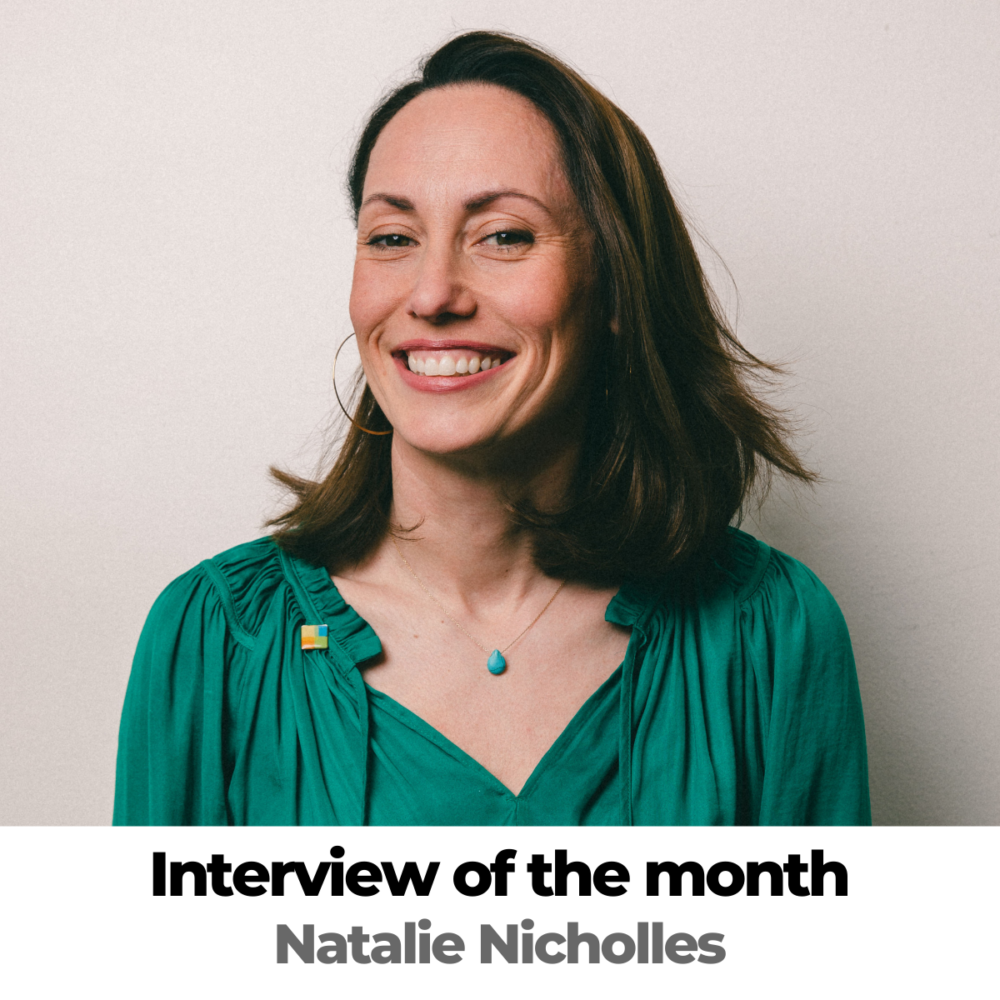
Interview of the Month: Natalie Nicholles
This month, SFG had the pleasure of chatting with Natalie Nicholles Executive Director of the Capitals Coalition. SFG’s Managing Director, Kali Taylor, recently joined the Advisory Panel of this global, multistakeholder collaboration. It was launched in January 2020 and hosts over 500 leading organizations to accelerate the use of capitals thinking. Learn more about the capitals approach and how the coalition plans to scale it globally.
The Capitals Coalition states its ambition as « Having the majority of businesses, financial institutions and governments include the value of capitals in their decision-making by 2035 ». How are you going to go about achieving this lofty goal?
We know we have set an ambitious vision for a resilient economy valuing what matters. We did it because we believe the urgency to redefine what we value is growing. Financial metrics alone, centered around GDP and financial capital, are struggling to deliver the prosperity they once did. They served their purpose in the past, but they don’t fit in our interconnected world anymore. The polycrisis we face – from climate change and nature depletion to widening social inequalities – presents systemic risks that traditional financial indicators alone simply cannot capture. This is why updated metrics of success are not just important; they are essential for our collective future.
We recognize that the path forward isn’t going to be an easy one. Politicization of environmental and social issues, the cost of enacting transition plans and geopolitical tensions further stifle efforts. Yet, the rising tide of populism around the world is showing that the majority of people feel left behind by today’s economic systems. They are calling for an economy that values wellbeing, healthcare, jobs and pensions: an “impact” rather than “output” economy. And this is a powerful message to listen to.
To shape resilient companies, decision-making should be founded on the interdependence of natural, social, human and financial systems. Our new ten-year strategy sets out how we intend to realize this vision. It’s a journey of influence -we want to engage key decision-makers and powerholders, ultimately those who regulate today’s financial and economic systems. We believe accountants are critical to this systemic change and will help getting the value of all capitals on the balance sheet.
There are exciting market signals to draw on showing that financial returns depend on the value of all capitals. Over the past few years, innovative leaders in business and finance have been at the forefront of integrating the value of all capitals onto the balance sheet and into board rooms. Companies such as Forico, Natura, Orsted, Olam, Novartis and Holcim are demonstrating the power of embedding natural, social, human and produced capitals into decision-making to shore up resilience. These companies, alongside others, have innovated and collaborated to account for what matters across sectors and geographies.
As mentioned at the beginning, we are committed to mainstreaming this transformative approach by updating the financial system. This is about seeing the value of all capitals on balance sheets and P&L’s, and about understanding the impact and dependencies that truly shape our world. We are a coalition – a global collaboration of more than 500 partners who will all play their part. This is about radical partnership working together to change behavior and systems. Once the invisible is made visible, finance can flow to where it is most needed to provide the future impact economy for people and planet.
CC has done an impressive amount of work on developing the Beta Framework for integrated decision-making. What exactly is the framework and how do you envision companies using it? How do you see the adoption of this framework contributing to moving the needle on large-scale sustainability transformation?
Thank you. The framework is currently in consultation, and we intend to launch it in July. This is an innovative and practical framework to build confidence in the valuation process such that it improves decision-making on all capitals. It introduces seven steps to include the value of all four capitals into decision-making and comes with a clear governance framework (Governance for Valuation) and detailed technical guidance (Capitals Protocol). Building on practical examples and pilots from business and finance we will target specific regulators and decision-makers with a clear market-ready guide for integrating four capitals into their regulatory frameworks. This will ensure transition planning delivers s a carbon neutral, nature positive and equitable future.
To truly unlock the transformative potential of our Framework and for it to be adopted by the market, we want to ensure it is embedded in regulatory guidance. It will be a pivotal moment, one that will reshape the real economy and how we understand value and value creation. The decision in front of us now is to make nature financially relevant, putting it on the balance sheet and in the P&L. In the future, the imperative will be to fully incorporate nature and the value of all capitals in transition planning.
As this framework is adopted by businesses on a voluntary basis, how do you plan to embed the capitals approach in policy and markets in a more formalized manner?
When it comes to nature we have seen businesses really engage behind climate, nature and biodiversity. This has been supported by the TNFD developing a voluntary framework, as well as by global policymakers adopting a requirement for large organizations to assess, disclose and act on impacts and dependencies on nature (Global Biodiversity Framework, Target 15). This could be the blueprint for the other capitals. We see a growing recognition among businesses to go beyond disclosure. Many businesses see the real opportunity in moving away from mere reporting information to focus and leverage these insights. Of course, there is still a reluctance from some businesses and there are significant headwinds. Nevertheless, we are inspired by best practice company examples and ultimately, we strongly believe that thoughtful regulation is going to be critical in mobilizing wider company action by making it mandatory.
How do you envision the finance sector adopting a capitals approach? How does it differ from the way businesses in the real economy adopt the approach?
Power lies in the financial system, and the financial sector is beginning to understand and accept that ignoring dependencies on nature, people and society undermines a stable operating environment and long-term multi-dimensional value-creation. This understanding marks a critical turning point in our collective journey towards an economy that value both people and our planet in the face of growing environmental and social risks. According to WBA’s second benchmark of the financial sector companies, leading companies are prioritizing natural, social and human metrics as well. These companies inspire and empower others to act. While we recognize the progress made by these leaders it does not get us to where we need to be –we need to connect this influence with the real economy. This starts by putting the value of all capitals on the balance sheet and P&L. We have seen tangible progress in investment behind nature backed up by regulation. We now believe there is the opportunity to leverage this momentum around nature as the jumping off point to catalyze a wider adoption of valuing all capitals. It was great to hold the space for more than 70 leading financial institutions, companies and policymakers in Davos on exactly this topic. We are seeing some of the signals of change in investment mandates and impact goals. There will be more.
We take a multi-faceted approach to achieve our goal. That means that we harness our experience from the real economy and think about the financial and regulatory changes that need to happen in parallel. Some of the practical solutions for how we move forward faster together are: Digitalization of data and insights, market ready infrastructure to match decision-making to scalable investments, innovative finance mechanisms to incentivize the market, blended finance and debt swaps and partnerships .The need for innovation and collaboration across business, finance and policymakers is foundational to accelerate the flow of capital for impacts and returns for people and planet. We also need the help of regulation to empower more action and embed value in the system. In partnership we can mobilize financial markets towards a nature positive, net zero, and prosperous economic future. A future we will all value.


